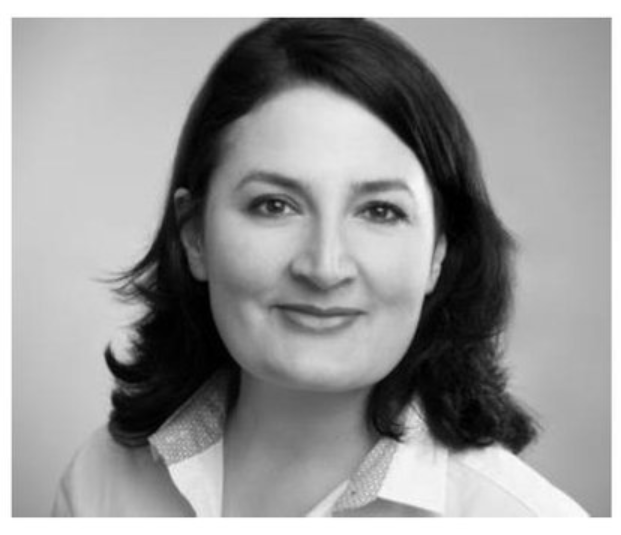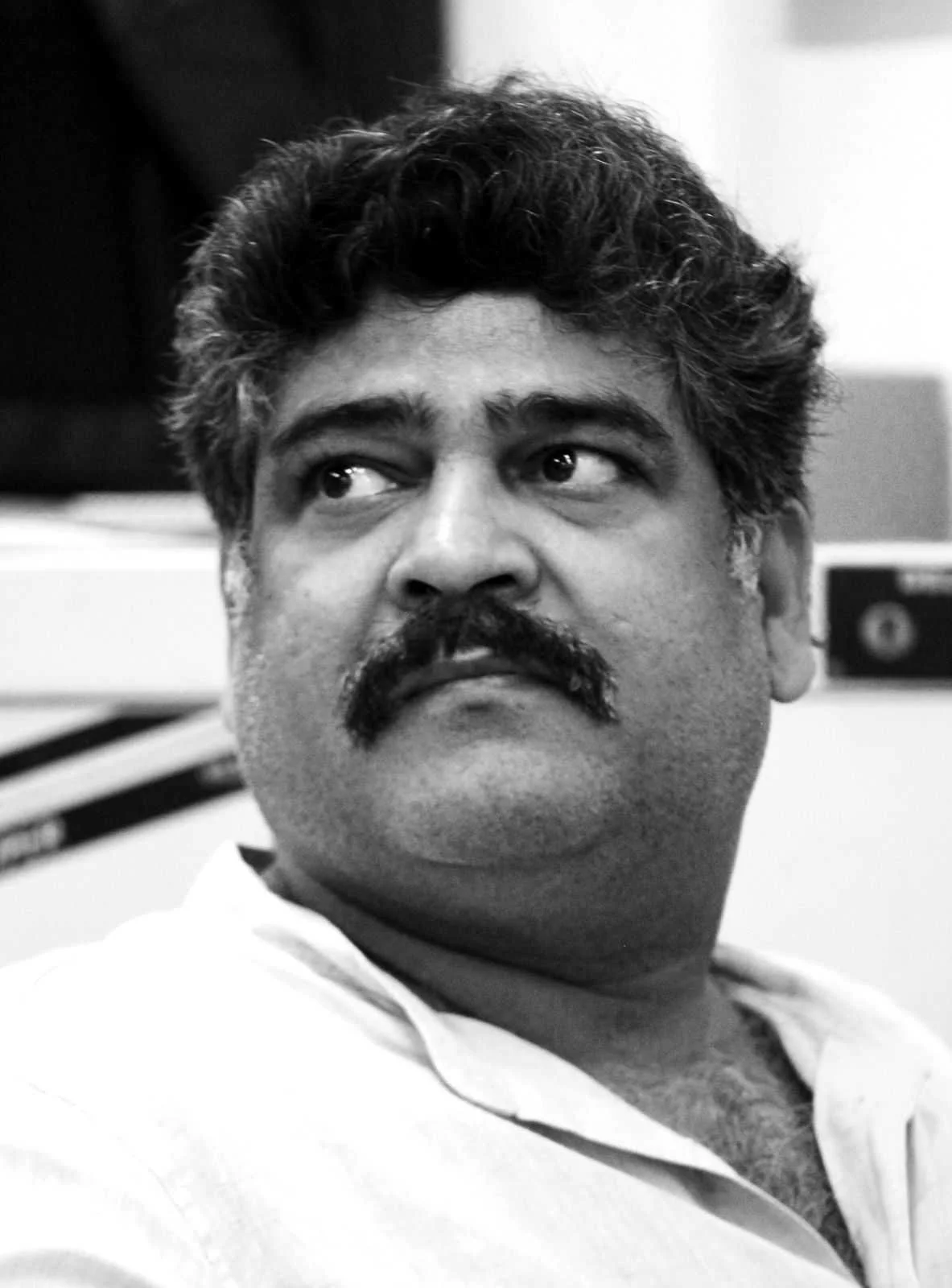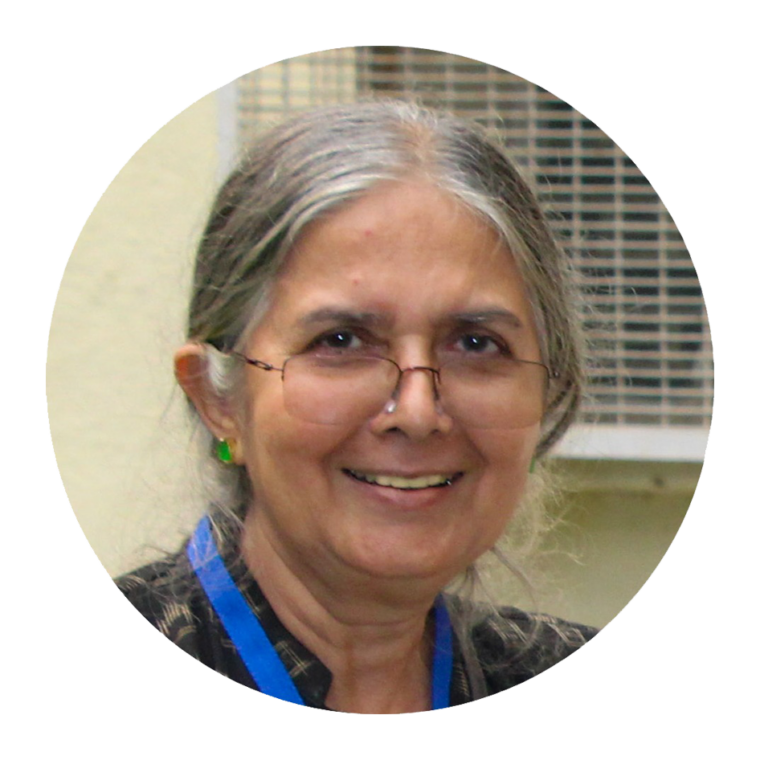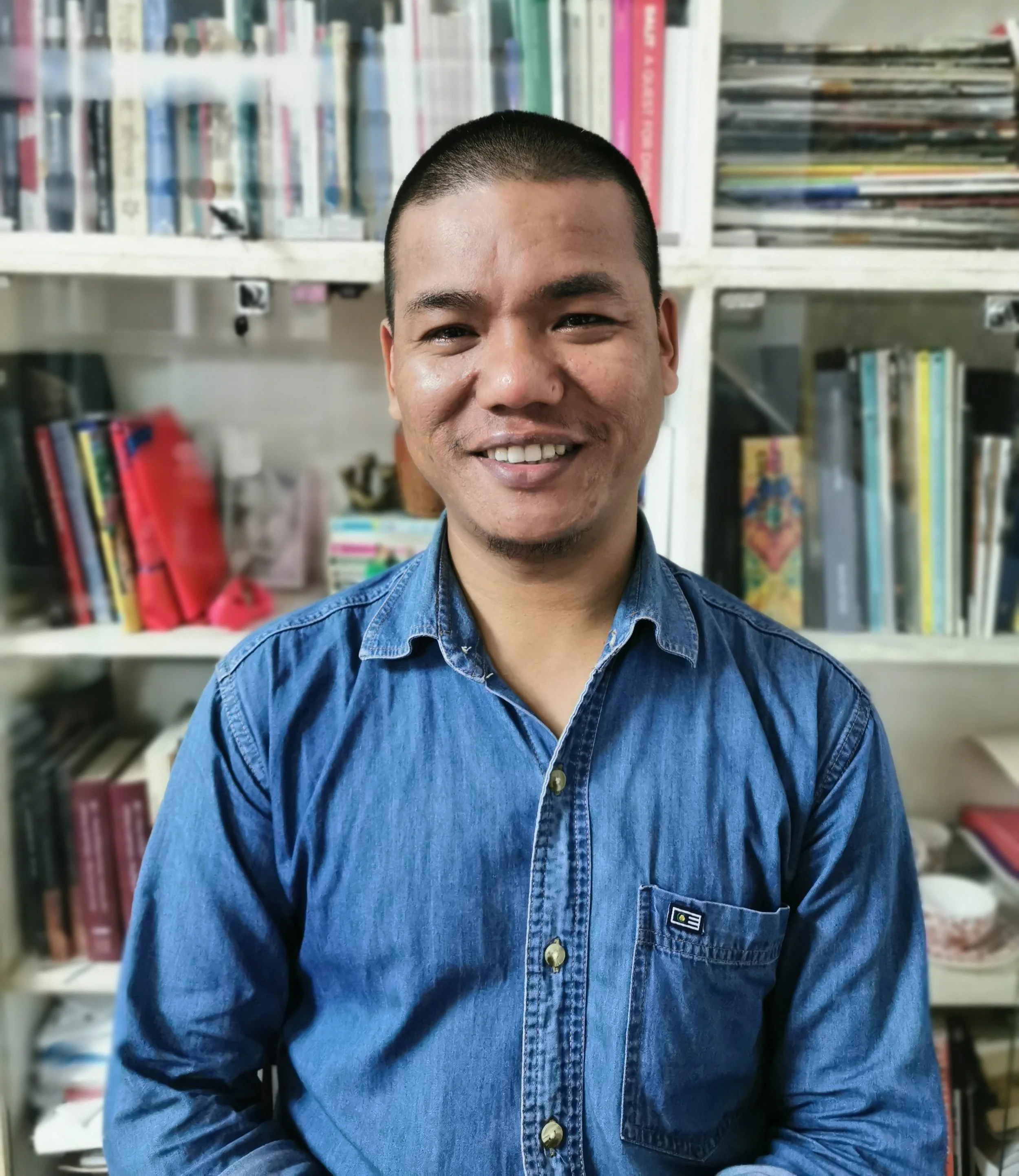commoning series
In this podcast Pushpa Palanchoke speaks with Dr. Christiane Brosius, HaP Principal Investigator, about her work and ongoing doctoral research on gender, inclusivity, music and placemaking. Palanchoke discusses her work with different organisations such as Folk Lok and Taḥnani Dāphā Khalaḥ, which work with Dapha music, a musical form of the Newa community. She highlights the central roles these women play as educative agents and public pedagogues to foster gender-inclusive placemaking within the music heritage practices of the Newa people.
Pushpa Palanchoke is an Applied Ethnomusicologist and a Music Educator from Nepal. She is currently a doctoral candidate at Mutri Doctoral School, Sibelius Academy, Helsinki and a researcher at amplifyHer project. She is a recipient of Nepal Chatra Vidya Padak and Nepal Vidhya Bhusan (Ga) & (Kha), three highly prestigious national awards in the field of education. She is an academician with interests in gender-inclusive placemaking, rituals, music heritages and sustainability of and through them. She is also an artist—a vocalist and spoken word poet whose stage performance is a blend of melodies she has learned from different indigenous masters, and poetry that tells stories of nature, divine mother, human desires and struggles. She is the mind and heart behind the program Folk Lok. Folk Lok is a community-based arts program focused on the revitalization of indigenous music practices. Between 2020-2023, Folk Lok was supported by the U.S. Embassy’s Book Bus and managed under Satori Centre for the Arts.
Episode 2*
Who cares about India's modern architectural heritage?
By Prof. Dr. Nadja-Christina Schneider
This essay explores the contested status of India’s modern architectural heritage in the context of political ideology, memory politics and urban development. Drawing on the example of the demolition of Delhi’s Hall of Nations, it examines how critical regionalist architecture is marginalized in favor of nationalist and neoliberal aesthetics. It further discusses the roles of architects, memory actors and ‘small media practices’ in reclaiming space for critical engagement and public memory. Lastly, the essay presents the position of architects who argue for a more inclusive understanding of heritage rooted in inhabitation, social meaning and democratic dialogue.
Prof. Dr. Nadja-Christina Schneider is a professor of Gender and Media Studies for the South Asian Region (GAMS) at Humboldt-Universität zu Berlin.
*The following text is a shortened version of a lecture given on Nov 11, 2024 as part of the COMMONING online lecture series of the Heritage as Placemaking Project at Heidelberg University, and is offered in place of a podcast.
Episode 1
Dr. Lorena Gibson and Dr. Eli Elinoff ‘Commoning Ethnography’
With hosts Dr. Monica Mottin and Diego Jaimes-Niño
In this episode of the of our podcast, HaP team members Dr. Monica Mottin, research fellow for HaP in the Heidelberg Center for Transcultural Studies, and Diego Jaimes-Niño, project coordinator, speak with Dr. Lorena Gibson and Dr. Eli Elinoff about their experiments in their journal, "Commoning Ethnography". They take us through the politics of commoning and how—from a research topic—it emerged as a methodology. Dr. Gibson and Dr. Elinoff share their experiences as the editors of the journal and the challenges of its publication, reflecting more largely about ethnographic practice, particularly in Aotearoa. Can ethnography be a site, source or scene of commoning? What new possibilities emerge when we combine commoning and ethnography? What is the importance of considering hope as a researcher? And why dedicate a journal to such a seemingly paradoxical experiment? We explore these questions through Lorena and Eli's experiences as editors and through their own research.
Dr. Lorena Gibson is a Senior Lecturer in the Cultural Anthropology Programme at Te Herenga Waka – Victoria University of Wellington. Her research interests include NGOs, international development, education, critical pedagogy, music, and hope.
Dr. Eli Elinoff is a Senior Lecturer in the Cultural Anthropology Programme at Te Herenga Waka – Victoria University of Wellington. His research explores the intersection between politics, urbanization, and environmental transformation in Southeast Asia.
Erasure series
Episode 7
Dr. Mallika Shakya: ‘Narratives of Ageing, Narratives of Nation-Building: Ralpha and the Legacy of Dissident Poetry in Nepal‘
With hosts Dr. Stefanie Lotter and Dr. Uma Pradhan (Nepal Conversations)
About this episode: In this installment of the Erasure Series, Dr. Mallika Shakya (South Asian University, Delhi) discusses her work on the dissident Ralpha songs of Nepal and ensuing patterns of remembering and forgetting. By situating this body of work within the ongoing anthropological discussions surrounding the epistemologies of writing culture, it seeks to build on the evocative power of poetry to stir conceptual conversations about nationalism, belonging and the passage of time.
Dr. Mallika Shakya is a Senior Assistant Professor in the Department of Sociology at South Asian University. Her work is interested in the social embedding of industrialization in capital cities and border towns and the poetic imagination of nation and border in South Asia. Her writing has been published in leading academic journals, and her monograph “Death of an Industry: The Cultural Politics of Garment Manufacturing during the Maoist Revolution in Nepal” was published by Cambridge University Press in 2018. Dr. Shakya also serves on the editorial committees of three journals: Dialectical Anthropology, the European Bulletin of Himalayan Research (EBHR) and Society and Culture in South Asia (SCSA).
This episode is a collaboration between the Heritage as Placemaking project and the Nepal Conversations podcast.
Episode 6
Dr. Arshi Javaid: Erasure and the Old City of Srinagar
With hosts Dr. Sabin Ninglekhu and Prof. Dr. Christiane Brosius
In this episode, hosts Dr. Sabin Ninglekhu and Prof. Dr. Christiane Brosius speak to Dr. Arshi Javaid (Einstein Junior Scholar at Humboldt-Universität zu Berlin, Germany) about the old city of Srinagar in the Kashmir Valley. Arshi shares her latest research on the erasure of Srinagar’s living heritage and how this process is facilitated through the centralized ‘Srinagar Smart City’ plan. Their conversation also dives into the various ways in which the Kashmir Valley and Srinagar in particular are represented digitally and exotified through Bollywood movies, and how today’s old city is experiencing gentrification in Srinagar, the death of the old markets, and the birth of new ones. Throughout, this episode reflects on how these happenings are shaped by the abrogation of Article 370, growing censorship, and the gradual loss of Kashmiri autonomy amidst the rise of what Arshi calls New Localism, which she defines as a form of “Kashmiri Right to the City with an indigenous color.”
Dr. Arshi Javaid is an Einstein Junior Scholar at the Institute for Asian and African Studies, Humboldt-Universität zu Berlin, Germany. Her project seeks to create a memory archive for the Old City of Srinagar in the Kashmir Valley, which is undergoing a dramatic transformation in terms of infrastructure, architecture, demography, and ownership patterns. Prior to this, Arshi has been a critical residency fellow with Academy in Exile, Berlin, where she compiled first-person narratives of Kashmiri Muslims and Kashmiri Pandits before 1989. Arshi earned her PhD from Jawaharlal Nehru University with a dissertation on the civic and ethnic dimensions of Kashmiri nationalism.
Episode 5
Prof. Bryony Whitmarsh: ‘Fabrication and Fragmentation: Nepal’s Memory Palace’
With hosts Dr. Stefanie Lotter and Dr. Uma Pradhan (Nepal Conversations)
About this episode: In the following episode, Prof. Bryony Whitmarsh looks at the Narayanhiti Palace Museum (Kathmandu, Nepal) as a site that is “both present and disempowered.” She argues that the intention behind those who authorised the museumization of the palace was to rather to fix a particular way of remembering (and forgetting) Nepal’s royal past, a process that involved both fabrication and destruction. As the initial moment of the transition from monarchy to republic recedes further into the past, Prof. Whitmarsh explores the processes that consigned the palace to the past.
Prof. Bryony Whitmarsh is a Professor of Heritage and Museum Studies within the Department of Archaeology at the University of Southampton and joined the Higher Education sector following a career in museums, bringing with her a wide range of experience including curation, learning, museum outreach and interpretation. She is currently Associate Dean International for the Faculty of Arts and Humanities, with teaching focused on the historiography of architecture and interior design (with a particular emphasis on a global history of architecture), material culture and museology.
Watch on YouTube:
This episode is a collaboration between the Heritage as Placemaking project and the Nepal Conversations podcast.
Episode 4
Dr. Christoph Emmrich: ‘Let’s Make a List: How to Get Things Done with Words in Newar Religious Practice’
With hosts Dr. Stefanie Lotter and Dr. Uma Pradhan (Nepal Conversations)
About this episode: In the following episode, Dr. Christoph Emmrich digs into the specifics of rites and rituals among the Newars of the Kathmandu Valley, with a look at the materiality and organizational tools behind these events, with a focus on making and consulting lists. By considering the list as a material and as a process, one that works in relation to multiple actors, he sheds new light on how things get done in Newar rites.
Dr. Christoph Emmrich is a Newarologist, Burmologist, Jainologist, and Associate Professor of Buddhist Studies at the University of Toronto, where he has been teaching Newar, Burmese, Pali, Buddhist, and Jain Studies since 2006. When he does not teach, he divides his time between Lalitpur among the Newars, Mawlamyine and Mandalay among the Mons and Burmese, and Pondicherry among the Tamil Jains, conducting research on rites and ritual literature, shop-keeping, and list-making, as well as poetry, textual practice, and temple management.
Watch on YouTube, Listen on Spotify and SoundCloud:
This episode is a collaboration between the Heritage as Placemaking project and the Nepal Conversations podcast.
Episode 3
Dr. Prem Phyak: ‘The politics of erasure: Language, place and ideology in Nepal’
With hosts Dr. Stefanie Lotter and Dr. Uma Pradhan (Nepal Conversations)
About this episode: In our third episode, we welcome Dr. Prem Phyak, who explores the multiple implications of the erasure of language in Nepal. By underscoring how the state has engaged in the strategic forgetting of the names and the historicity of the land, he examines how policies have both explicitly and implicitly erased multilingualism and promoted homogeneity until today. He furthermore discusses his interest in and experience with indigenous and multilingual education, and how his own experiences have shaped his research agenda.
Dr. Prem Phyak is an Assistant Professor at the Department of English at the Chinese University of Hong Kong. His research interests include language policy, multilingualism, language ideology, Indigenous language education, and teacher education. He has co-authored a book, Engaged Language Policy and Practices (Routledge, 2017) and published articles in several journals.
Watch on YouTube, Listen on Spotify and SoundCloud:
This episode is a collaboration between the Heritage as Placemaking project and the Nepal Conversations podcast.
Episode 2
Roshan Mishra: ‘Reclaiming Nepal’s Heritage’
With hosts Dr. Stefanie Lotter and Dr. Uma Pradhan (Nepal Conversations)
About this episode: In this second episode of the ‘Erasure’ series, Roshan Mishra highlights how the Nepal Heritage Recovery Campaign began, what it has done so far to reclaim Nepal’s cultural properties, and why it is important to the community. The talk will go over the campaign's successes, challenges, and a few examples of cases we have dealt with over the last two years.
Roshan Mishra is the Director of Taragaon Museum and a Kathmandu-based visual artist. He oversees the Nepal Architecture Archive (NAA), which is run by the Saraf Foundation for Himalayan Traditions and Culture, a Taragaon Museum patron organisation. Roshan is also the founder of Global Nepali Museum, Nepalian Art, and an initiator of the Mishra Museum, as well as a visiting faculty member at the Kathmandu University, Art and Design. Roshan is now actively involved in the Nepal Heritage Repatriation campaign (NHRC) to bring back Nepali lost and stolen heritage.
Watch on YouTube, Listen on Spotify and SoundCloud:
This episode is a collaboration between the Heritage as Placemaking project and the Nepal Conversations podcast.
Episode 1
Kathryn March: ‘Flowers of love in Western Tamang song traditions’
With hosts Dr. Stefanie Lotter and Dr. Uma Pradhan (Nepal Conversations)
About this episode: In this first episode of Heritage as Placemaking’s Erasure Series and Series 4 of the Nepal Conversation podcast, we are very pleased to present Professor Kathryn S. March's research. This episode is divided into two parts. Part 1 is Kathryn March’s Lecture on Western Tamang dancing and ripost songs known as Mhendomaya—”Flowers of Love”—that explore both continuity and change in this vibrant song tradition. Part 2 is our conversation with her.
Kathryn March is Professor Emerita at Cornell University’s Department of Anthropology. Her research areas include gender and social change in Himalayan Asia, the political and economic pressures on local ethnic communities, and the study of ritual, religion, and song as both reflective of individual experience and larger cultural and aesthetic frameworks.
This episode is a collaboration between the Heritage as Placemaking project and the Nepal Conversations podcast.
Watch on YouTube, or listen on SoundCloud or Spotify:
Part 1 (Introduction and Lecture)
Part 2 (Chaired Discussion)
This episode is a collaboration between the Heritage as Placemaking project and the Nepal Conversations podcast.
Decolonization Series
As part of HaP's Decolonization strand, in this episode, host and HaP principal investigator, Dr. Sasanka Perera, speaks with Dr. Ravi Kumar about the relationship between, religious heritage, consumerism, contemporary pilgrimage culture; especially during big religious festivals attracting huge numbers of pilgrims. One of the highlights of this discussion is Kumar's deliberation on the Kumbh Mela – ‘Reinventing religion beyond the spectacular consumption at Maha Kumbh Mela'. Kumbh Mela, as we know is a major Hindu pilgrimage and festival, known as the world's largest public gathering, held every 12 years at different locations along sacred riverbanks in India.
Dr. Ravi Kumar works as an Associate Professor in the Department of Sociology, South Asian University (New Delhi). He was also the Chairperson of the Department of Sociology and Associate Dean of Faculty of Social Sciences. He co-edits book series on ‘Social Movements, Dissent and Transformative Action’ (Routledge: Delhi); ‘Conversations on/for South Asia’ (Aakar Books); and ‘Sociology/Anthropology Across Borders’ (Primus: Delhi).
This episode, part of HaP's decolonization strand, brought together the intersections of gender, heritage, and diaspora with a focus on Tibetan women’s lived experiences in India. Dr. Amrita Saikia, speaking with HaP's research fellow, Dr. Pooja Kalita, discusses how gendered notions of heritage reshape cultural memory and resistance in exile. From domestic spaces to storytelling and culinary traditions, they explore how Tibetan women challenge male-centered nationalist narratives and create new “places” beyond geographic boundaries. The conversation also addresses the need to decolonize heritage discourse in South Asia, offering fresh insights into how heritage can be seen as a dynamic, evolving practice rooted in everyday life.
Dr. Amrita Saikia is an interdisciplinary researcher with a background in Disaster Studies, specializing in Conflict, Peace, and Development. She received her Ph.D. at the Tata Institute of Social Sciences (TISS), Mumbai, in 2022. Her research interests cut across forced migration, gender, ethnic conflicts, peace, public health, and development. Amrita’s work spans topics such as Tibetan refugees, indigenous women in peacebuilding in Northeast India, public health, disasters, and development. Her recently published monograph—Gender, Nation, and Nationalism: Perspectives of Tibetan Women in Exile, published by Routledge, is an outcome of her Ph.D. work. Amrita received the Fritz Thyssen Postdoctoral fellowship in 2023 and conducted her research at the German Institute for Global and Area Studies, Hamburg, Germany. Besides academia, Amrita has a keen interest in fiction writing, and she derives the inspiration for the stories from her ethnographic works.
In this episode we journey through Ramayana Renditions, Heritage, and Creative Forms of Storytelling in South Asia; particularly in India and Sri Lanka, along with host, HaP principal investigator, and chairperson of Colombo Institute, Dr. Sasanka Perera. From ancient texts to modern performances, Dr. Perera, speaking with Dr. Roma Chaterji, explore how the epic continues to inspire diverse artistic and cultural expressions. This conversation uncovers the living legacy of the Ramayana in shaping identities, narratives, and regional traditions.
Dr. Roma Chatterji retired as Professor of Sociology from Delhi University and is currently visiting professor at Shiv Nadar University. Apart from her abiding interest in folklore and folk culture, she has also worked on collective violence and illness narratives and has published extensively on all these subjects. Her current work is on picture storytelling, and she has explored several such forms ranging from the traditional arts of Bengal and Madhya Pradesh to popular superhero comics.
In this episode our team member Dr. Pooja Kalita from the Colombo Institute speaks with Dr. Anushka Kahandagamage as she takes us through New Buddhist Movements in Sri Lanka. The episode delves into how contemporary Buddhist practices intersect with ideas of heritage and evolving notions of religion, identity and politics in Post-War Sri Lanka.
Dr. Anushka Kahandagamage has a PhD in Religion from the University of Otago, New Zealand, where she researched new Buddhist trends in post-war Sri Lanka. Her work, through ethnographic and interdisciplinary methodologies, contributes largely to broader conversations on religion, modernity, and cultural transformation in South Asia.
In this episode, the visual artist Anoli Perera speaks to Heritage as Placemaking hosts Dr. Pooja Kalita and Emily Hyatt about her artistic practice and its connections to practices of decolonial placemaking. Perera introduces the hosts to her working process, from an interest in the histories of materials and redefining craft to positioning her work along matrilineal cultures of memory. Throughout the episode, she takes us through the way that her sculpture and installation works, including "I Let My Hair Loose: Protest series," "Dinner for Six," "Memory Keeper," and "Second Skin," explore myriad ways of making place.
Anoli Perera is an internationally acclaimed visual artist who at present works out of Colombo, Sri Lanka, and New Delhi, India. A recipient of numerous honors and awards, she has showcased her work all over the world. She works extensively with multimedia and her work repertoire consists of paintings, sculptor, installations and performances. Perera’s art creatively and self-consciously bridges the gap between the personal and the political and the local and the global. She often exposes the meaning of the political in its plurality, while bringing in aspects of her own personal life and weaving it into the larger issues that haunts South Asia in general—autocratic regimes with flawed paradigms of development and freedom that have been failing its citizens. Anoli Perera studied political science, economics and sociology at the University of Colombo, Sri Lanka, followed by a postgraduate diploma in international affairs. She lived in the US between 1988 – 1992 and took up art education programmes in California and at Princeton in New Jersey. She was also one of the founding members of the Theertha Association for Contemporary Sri Lankan Visual Artists in 2000.
Anoli Perera, “I Let My Hair Loose: Protest Series I”, Ink Jet on Hahnemuhle photo rag Baryta, 30 x 20 inches, 2010-2011Edition 3 of 3 + 3 AP. Image courtesy of Shrine Empire Gallery.
Artist Anoli Perera (Image courtesy of the artist)
Episode 2
Dr. Neel Kamal Chapagain
With hosts Dr. Sabin Ninglekhu, Dr. Monalisa Maharjan, and Binita Magaiya
In the second episode of the Decolonization Series of the Heritage as Placemaking podcast, Dr. Neel Kamal Chapagain sits down with our hosts to talk about his ongoing work on heritage and how this relates to broader questions of decolonization. The conversation, which was held in Nepali and English, reflects upon the idea of authenticity as it relates to the preservation of heritage, conservation practices in Nepal, the notion of power with regard to heritage hierarchy, and the relationship between home, heritage and urban planning. By speaking about locales as far apart as Lo Manthang, Upper Mustang and Pashupati, Dr. Chapagain and our hosts also reflect on the centralization of the heritage discourse in the Nepal context and propose a wider alternative.
Dr. Neel Kamal Chapagain is Professor and Director at Centre for Heritage Management, Ahmedabad University. He also developed the Master in Heritage Management at Ahmedabad University, launching the program in 2015. Dr. Chapagain’s research is concerned with heritage discourses, community engagement, participatory processes, heritage values and authenticity, among others. A trained architect, he has also taught at University of Wisconsin-Stevens Point (USA) as full-time teaching faculty and at the University of Wisconsin-Milwaukee as a Doctoral Teaching Assistant. His professional journey spans Nepal, Bhutan, India, and the United States. He has co-edited a book titled Asian Heritage Management: Contexts, Concerns and Prospects (Routledge, 2013) and coordinates a publication series from Nepal titled Reflections on the Built Environment and Associated Practices, of which the first volume was published in 2013, the second volume in 2016, and the third volume in 2019.
Episode 1
Sheelasha Rajbhandari and Hit Man Gurung
With hosts Dr. Sabin Ninglekhu and Prof. Dr. Christiane Brosius
In this episode of the Heritage as Placemaking Podcast, Christiane Brosius and Sabin Ninglekhu sit down with visual artists and curators Sheelasha Rajbhandari and Hit Man Gurung. Sheelasha and Hit Man walk us through their artistic and curatorial practices with a particular eye on the connection between their work and cultural heritage, the many faces of indigenous resistance, and the plural dimensions of decolonization. With a critical eye on the notion of heritage, particularly the construction of a national or ‘representational’ image of the state, Sheelasha and Hit Man highlight the potential of civil solidarity and commoning to create transnational artistic counter-narratives. In doing so, they suggest that forging solidarity effects a kind of artistic practice as placemaking, rendering visible traditions of making and knowing that have previously been marginalized, and which contribute to the making of new social ties beyond the ethnic or national.
Sheelasha Rajbhandari and Hit Man Gurung are Kathmandu-based visual artists, curators, cultural organizers, and founding members of ArTree Nepal. Hit Man’s art deals with ideas of fragmented histories, failures of human revolution and human mobilities. His current work speaks to the strong impact of global capitalism and its unprecedented demand for cheap labor. Sheelasha’s work centers on oral histories, myths, material culture, and ritual as sources of alternative narrative, presenting them as a counterpoint to mainstream history and knowledge systems. Sheelasha and Hit Man recently co-curated the Kathmandu Trienniale 2077 and the first Nepal Pavilion at the 59th Venice Biennale (2022).
Sheelasha Rajbhandary (Image courtesy of artist)
Hit Man Gurung (Image courtesy of artist)














